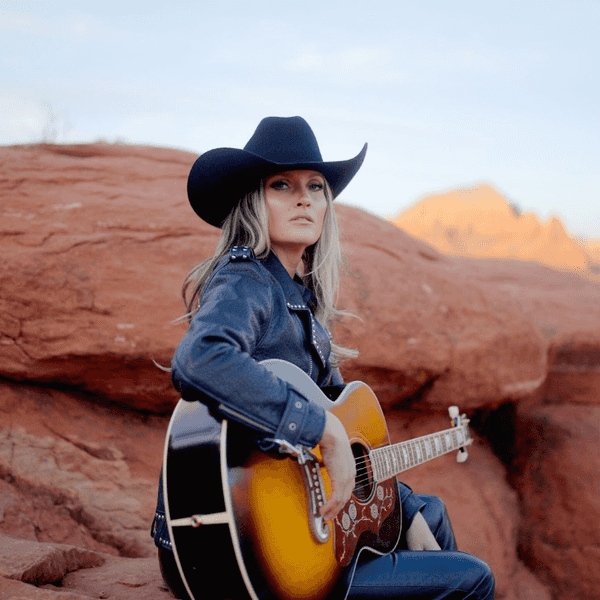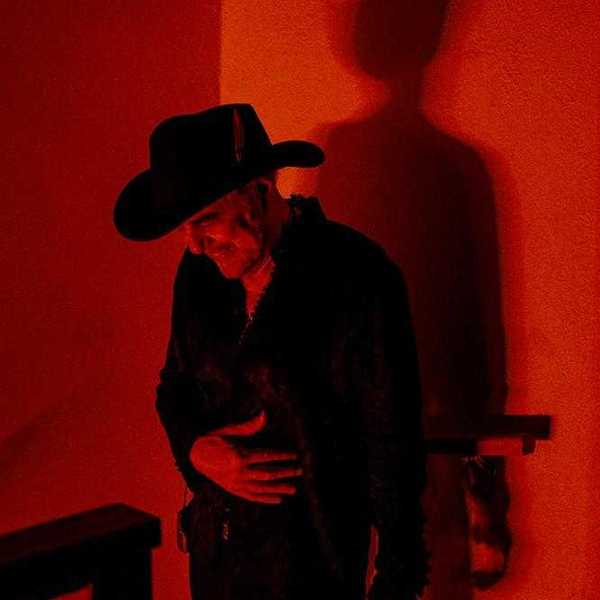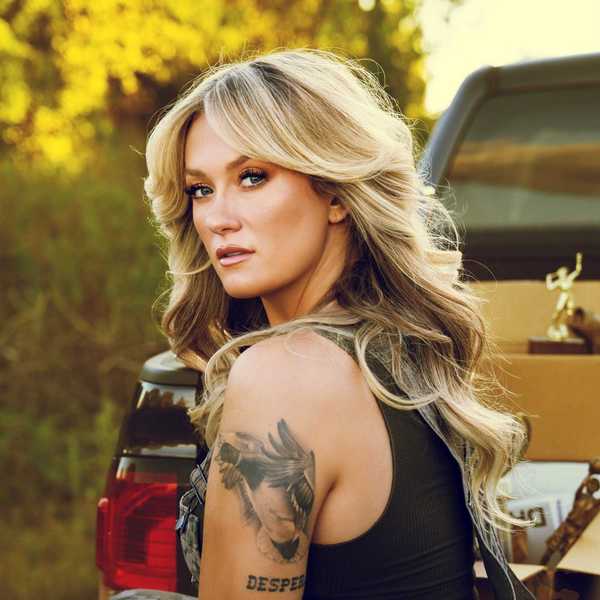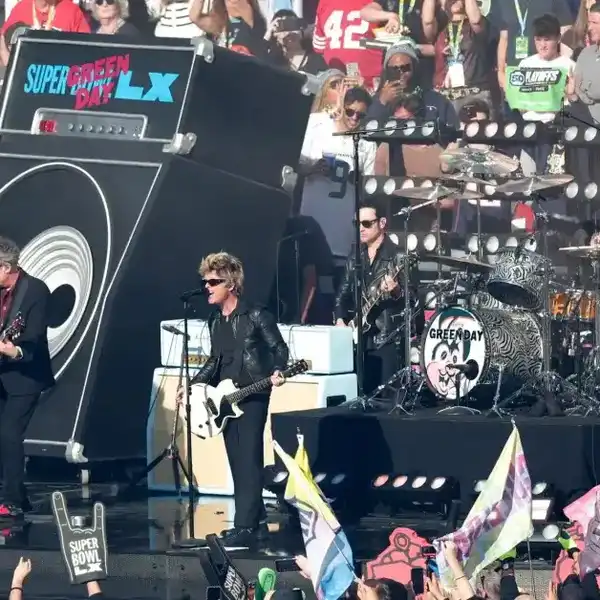Five Questions With… Flying Hórses
Montreal composer Jade Bergeron releases her second album on Friday. Here she discusses its dense aesthetic, her organic artistic evolution, and the challenges of being one of the few Canadian women in instrumental composition and neoclassical music.

By Jason Schneider
Flying Hórses is Montreal composer Jade Bergeron. On her second album, Reverie—out Feb. 22 through Bonsound—she takes huge inspiration from post-rock music and places herself firmly in the post-rock/instrumental genre. On the one hand, it’s a piano-driven record that could easily fit into the classical world, while the pieces are also made up of layered vintage instrumentation that guides the listener through a bleak and stormy narrative.
That feeling is similarly captured in the video for the album’s focus track “Isolation,” shot in the Canadian Rockies and upstate New York by director Dylan Toombs. It tells the story of a couple drifting apart through the woman’s flashbacks, culminating with her alone but still standing. It's the kind of subject matter Bergeron says women have been conditioned to be apologetic about, but now have no reason to be as a result of #MeToo.
Reverie follows the first Flying Hórses record, Tölt, which focused more on themes of childhood and growing up as a family’s black sheep. The elegiac nature of that album also stemmed from being recorded mostly in Iceland with producer BiggiBirgisson at Sundlaugin Studio, SigurRós’ studio of choice.
It soon landed Bergeron a place on prestigious European neoclassical label 1631 Recordings’ roster alongside Oscar-nominated composers Dustin O’Halloran and Hauschka. She was also invited to play the Iceland Airwaves Music Festival as well as the Festival International de Jazz de Montreal before the Banff Centre extended an invitation to collaborate with Broken Social Scene/Do Make Say Think co-founder Charles Spearin.
With the self-produced Reverie, Bergeron has made a more immediately accessible record without compromising her ambitious musical vision. Find out more at flyinghorses.ca.
What makes Reverie different from your debut album?
On Tölt, I was experimenting with acoustic instrumentation and wanted to tell a story using as few instruments and sounds as possible. I had no intention of creating a classical record when I wrote Tölt. It just happened that way, I suppose.
Reverie, although still acoustic, has a much denser aesthetic. I wanted to approach this record with more dynamics, and allow listeners to “breathe” or “slow down” while listening. I felt like I should incorporate more of my metal and post-rock influences while composing the album because the story that I'm telling is somewhat of a personal one. Metal and post-rock are much closer to my heart than classical music.
What songs on the record are you most proud of and why?
This is the first time in my life that I've written music that I can listen to without cringing or having some level of anxiety. I would consider myself to be a perfectionist when it comes to my work, and I have to admit, the record brings me a sense of peace.
I would have to say that “Isolation” is my favourite song to play right now. “Homebound” is the song that speaks to me the most on the record, but the reasons are too personal to share. More importantly, it's my job as an instrumental composer to allow my listeners to let the music take them on their journeys.
How would you describe your artistic evolution so far?
Organic. I did not grow up in the music industry, nor do I have close family or friends who have been able to “jumpstart” my career in any way. I've had to learn how to build something from scratch, and I've also managed every aspect of my project from the very beginning. I think the upside to taking the backroads in music has a solid and honest foundation to keep building on.
I've made some wonderful friends and colleagues along the way who have played integral roles in helping me make some difficult artistic decisions. Overall, I feel that I have been able to consistently push myself creatively and professionally with the simple notion that I don't have a choice but to make music. It's what I'm made of.
What's been the biggest change in your life over the past year?
The past couple of years have been productive in both my musical and personal life. I'm in my thirties now, and so my threshold for negativity and toxic environments has changed significantly. I've been able to ground myself and narrow in on what's important in my life. I found that once I made the conscious decision to focus on myself, Reverie started to come about. It was a real struggle to make the record until I changed my perspective on why it was important to “get it out of my system” and onto the piano. I feel like a weight has been lifted.
If you could fix anything about the music industry, what would it be?
I keep hearing that times are changing, that women are in the spotlight, that women have an opportunity, that women aren't taking shit anymore. As much as I'm aching to believe it, I still find myself in situations where I have doubt. I'm proud to be a woman in music. I'm proud to admit that I'm one of the very few women in instrumental composition and neoclassical music in Canada. I'm also scared most of the time. It means having to bend over backward and continue to stay one of those women, having to fight my way through the sea of male composers to stay afloat. In some ways, it makes me a stronger woman, but it still terrifies me that there are still so few of us out there. I hope that if anything, my music might reach out to women in composition, and remind them that they are stronger than they know. And not alone.
















